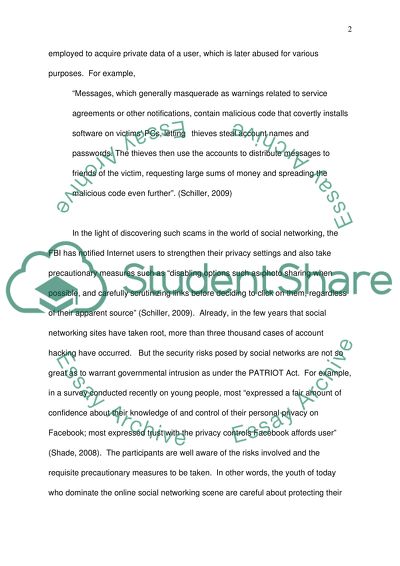Cite this document
(The USA Patriot Act and Issues of Privacy Case Study, n.d.)
The USA Patriot Act and Issues of Privacy Case Study. Retrieved from https://studentshare.org/information-technology/1568711-do-social-networks-bring-the-end-of-privacy
The USA Patriot Act and Issues of Privacy Case Study. Retrieved from https://studentshare.org/information-technology/1568711-do-social-networks-bring-the-end-of-privacy
(The USA Patriot Act and Issues of Privacy Case Study)
The USA Patriot Act and Issues of Privacy Case Study. https://studentshare.org/information-technology/1568711-do-social-networks-bring-the-end-of-privacy.
The USA Patriot Act and Issues of Privacy Case Study. https://studentshare.org/information-technology/1568711-do-social-networks-bring-the-end-of-privacy.
“The USA Patriot Act and Issues of Privacy Case Study”. https://studentshare.org/information-technology/1568711-do-social-networks-bring-the-end-of-privacy.


